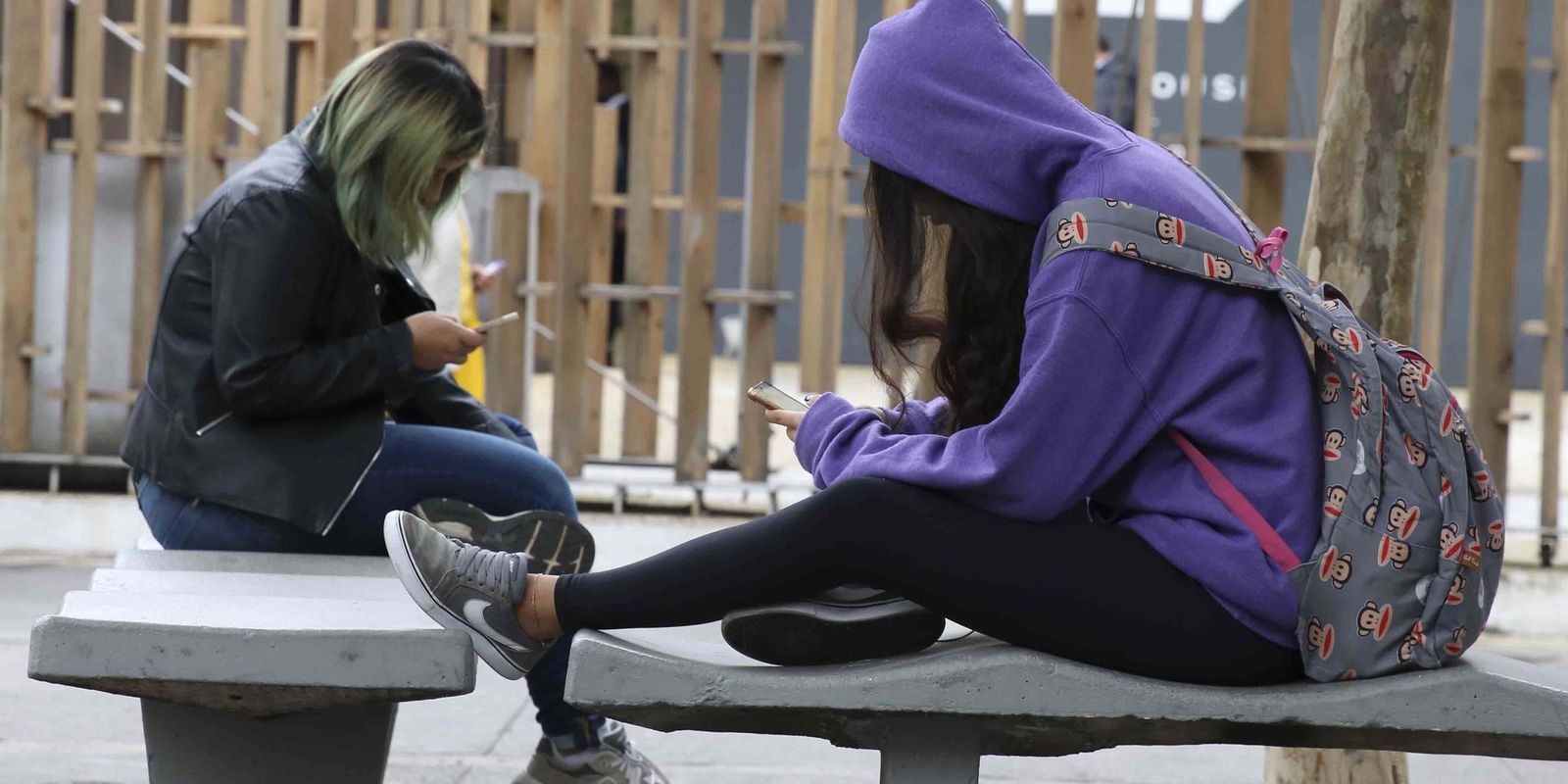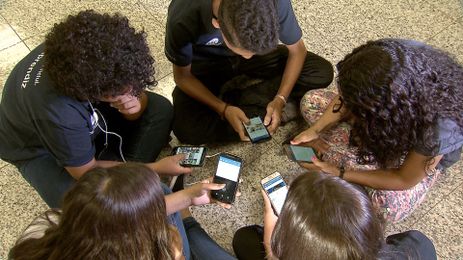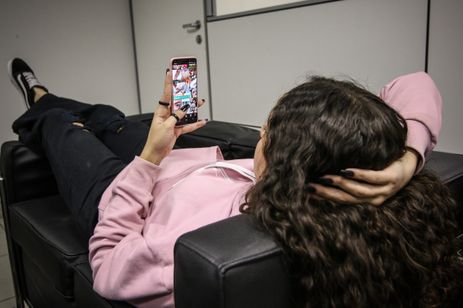Teachers and educational advisors consider the possibility of the Ministry of Education acting to ban the use of cell phones in public and private schools in the country to be positive. Scheduled to be presented in October, this and other proposals may be adopted with the aim of containing the damage caused by excessive use of screens in childhood and adolescence.
Recently, the Minister of Education, Camilo Santana, defended this idea during an interview with the newspaper Folha de S.Paulo. At the time, he cited some research indicating that the use of these technologies, in addition to compromising student learning and performance, would also impact the mental health of teachers.
Educational advisor for the Federal District Department of Education, Marina Rampazzo explains that professionals who work in education have discussed this issue a lot. “In the conversations we have with specialists from different areas, we see several damages caused by excessive screen use, especially in children and adolescents,” the pedagogue and psychologist told Brazil Agency.
Pandemic
She recalls that this was already a problem that was noticed before the pandemic, but that it has intensified significantly since then. According to her, in order to cope with all the accumulated demands, many parents have delegated the care of their children to screens.
“The pandemic gave screens more power. The problem already existed, but there was greater control over time, space, and content. As we entered a pandemic and everyone was locked inside their homes, families found themselves without other tools for young people at home,” he said.
She adds that it will not be easy to reverse this situation, but that schools will play a decisive role in this challenge. “Firstly, because of the social role that schools play, thinking of education as something integral that goes beyond passing on content, also acting in the cognitive field, developing all aspects of life”, she explained.
According to Marina, this discussion goes beyond schools because socialization is the most efficient way to keep students away from screens. “School is where they spend most of their time. If outside of school they spend all their time on their cell phones, inside school is an opportunity for them to interact with other people, with real books and with various cultural, leisure and sports activities,” she argued.
Antisocial behaviors
According to educational advisor Margareth Nogueira, from the private school Arvense, the excessive use of screens has increased anti-sociability and bullying in schools. “Between the ages of 10 and 12, it is very important that students use dialogue in its three levels of complexity, which are thinking, reflecting and consistency, with reasons and counterpoints to a topic,” he explained.
“If they can’t reach that level, with arguments, counter-arguments and consensus, there will be no dialogue. What we see is that listening to others has become increasingly complex for them. It is very important that they develop exchanges, that they look each other in the eye. They need dialogue, interactivity and the exchange of opinions,” he added.
According to her, cell phones have also damaged students’ vision. “They are using glasses at an increasingly early age due to the excessive use of these screens.”
Addiction
Another concern for educators is the addictive relationship that cell phones create for children and adolescents.
“Many have been experiencing true withdrawal symptoms when they are separated from their cell phones. They become more aggressive, impatient and intolerant. It is increasingly common for boys to break the house when they are forbidden from using the device,” reported Marina Rampazzo.
Margareth Nogueira also notices that, due to this “technological addiction”, students have been arriving in class more agitated, impatient and aggressive. “The competitiveness among them is also higher, a reflection of the stimuli caused by games. Their diet, routine and sleep are increasingly impaired. This directly affects brain function”, she said.
“The truth is that they do not have the maturity or brain response to use cell phones systematically. And, to make matters worse, it is not always possible for adults to adequately supervise the use of these devices,” he added.
Support for new rules
If the measures announced by the minister are confirmed, it is important that schools ensure sufficient infrastructure to provide access to internet materials considered relevant for use in the classroom. “This access should be through school tools, such as computers, for example. Not through students’ cell phones. We all know how difficult it is to have control over how they will use these devices,” argued Margareth.
At the same time, it is important that families provide other stimuli at home that are independent of screens. “Areas such as art, culture, sports and leisure can help in this sense. Especially when they are focused on socialization,” added Marina.




















